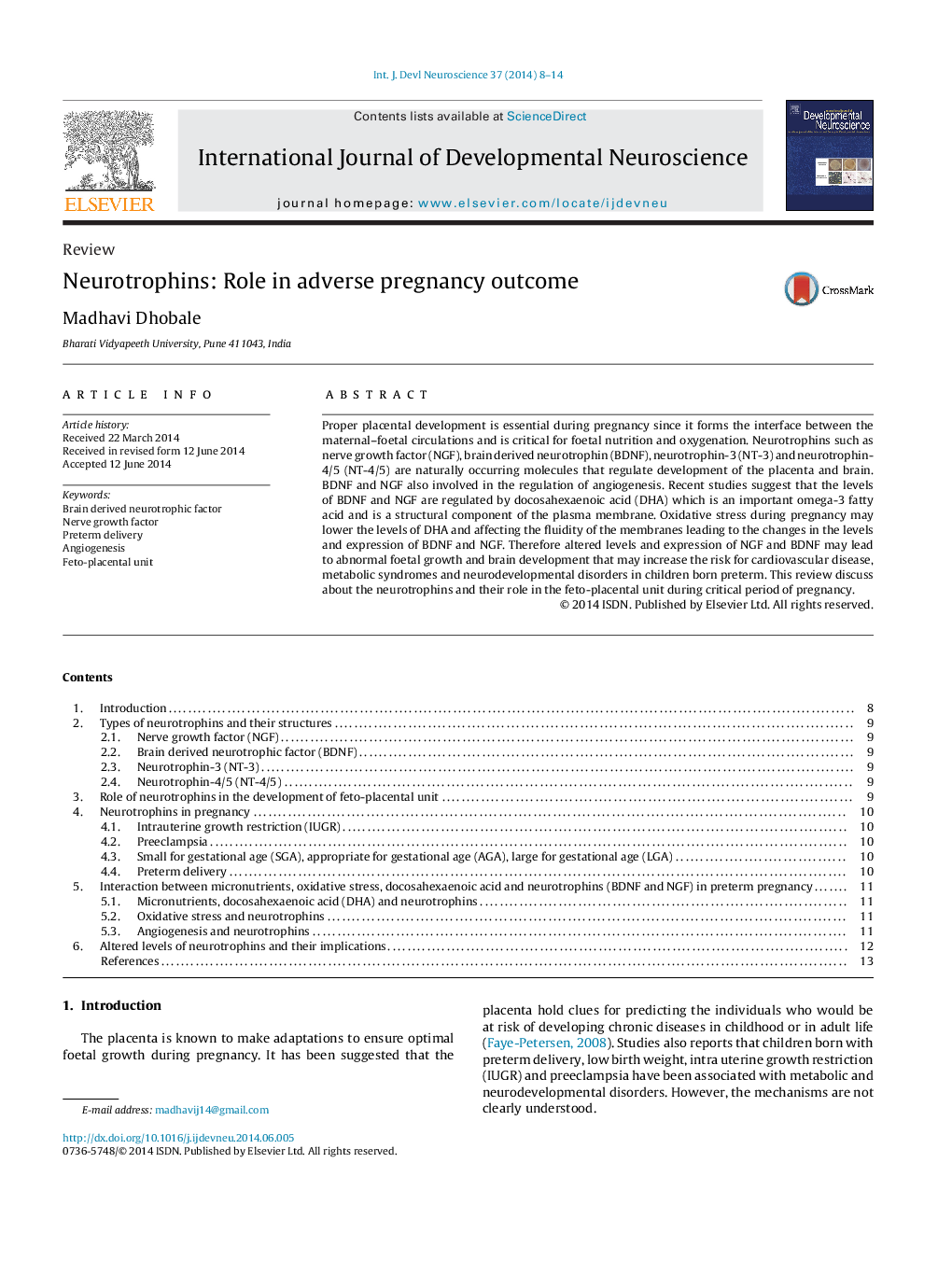| Article ID | Journal | Published Year | Pages | File Type |
|---|---|---|---|---|
| 5893886 | International Journal of Developmental Neuroscience | 2014 | 7 Pages |
â¢Neurotrophins play a role for the development of the feto-placental unit.â¢The lower levels of cord BDNF and NGF in preterm pregnancies may provide clues to predict cognitive deficits in children.â¢Neurotrophins influences birth outcome and neurodevelopmental risk through angiogenesis and cellular growth, survival and maturation.
Proper placental development is essential during pregnancy since it forms the interface between the maternal-foetal circulations and is critical for foetal nutrition and oxygenation. Neurotrophins such as nerve growth factor (NGF), brain derived neurotrophin (BDNF), neurotrophin-3 (NT-3) and neurotrophin-4/5 (NT-4/5) are naturally occurring molecules that regulate development of the placenta and brain. BDNF and NGF also involved in the regulation of angiogenesis. Recent studies suggest that the levels of BDNF and NGF are regulated by docosahexaenoic acid (DHA) which is an important omega-3 fatty acid and is a structural component of the plasma membrane. Oxidative stress during pregnancy may lower the levels of DHA and affecting the fluidity of the membranes leading to the changes in the levels and expression of BDNF and NGF. Therefore altered levels and expression of NGF and BDNF may lead to abnormal foetal growth and brain development that may increase the risk for cardiovascular disease, metabolic syndromes and neurodevelopmental disorders in children born preterm. This review discuss about the neurotrophins and their role in the feto-placental unit during critical period of pregnancy.
